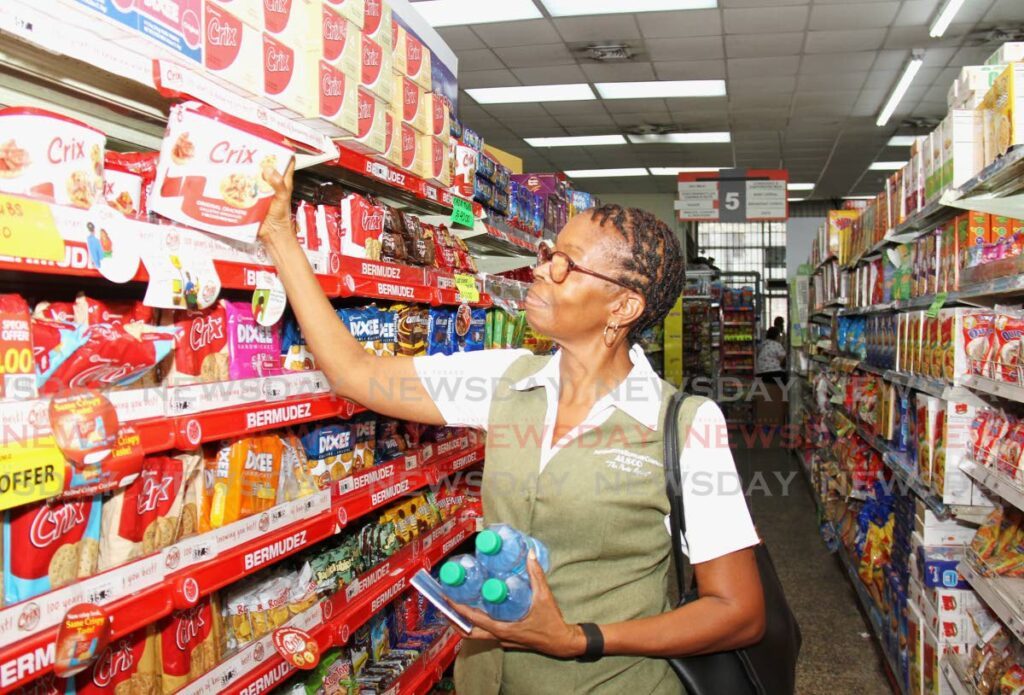Supermarket Association: Challenging outlook for 2024

BAVINA SOOKDEO
AS Trinidad and Tobago transitions into the New Year, president of the Supermarket Association of Trinidad and Tobago (SATT), Rajiv Diptee, provided key insights into the outlook for the supermarket industry in 2024. In a recent interview with Business Day, he addressed various aspects ranging from industry challenges to cybersecurity, community collaboration and sustainability initiatives.
Diptee said the association is committed to working closely with suppliers to ensure qualitative and quantitative supply chains.
He acknowledges the challenges posed by foreign exchange access, geographic conflicts and institutional red tape.
"We continue to work closely with all suppliers as we grapple with challenges, novel and traditional," he said.
He added that SATT aims to continue its strong and vibrant representation of the sector as well as its support for charities.
He said the second edition of the Caribbean Food and Beverage Trade Show will be a hallmark event for the association in 2024.
Addressing the rising concern of cyber attacks, Diptee detailed ongoing efforts, saying, "For some time, we have been engaging in dialogue with the Cyber Security Incident Reporting Unit of Trinidad and Tobago (TT-CSIRT) and other private contractors, to assess vulnerabilities within the digital architecture to conduct vulnerability assessments. The threat has been established and we are encouraging our members to address it proactively."
Speaking on the issue of crime, Diptee said, "I must stress the continued collaboration between communities and community policing. Not just at the level of TTPS, but within community patrols, social media watchdog groups and ensuring that the maximum is done, to secure premises with CCTV, burglar proofing, sensors, security during peak hours as well as co-ordinating measures to secure procedural processes during operations."
Describing the supermarket industry in Trinidad and Tobago as hyper-saturated and competitive, he acknowledged the diverse range of options available to customers.
"This makes it extremely competitive which, in itself, is a proverbial barrier to entry. Customers have so many options ranging from membership retail warehousing outlets to brand name chain stores to community supermarkets, corner shops, mini marts, parlours, beverage outlets and so many more. I would say this makes it extremely difficult for price gouging to occur and would also place many retailers at risk for the return of favoured margins. It’s an extremely competitive landscape in 2024," he said.
With the expansion of supermarket chains in Trinidad, Diptee said, "In many aspects, we’ve been witnessing the erosion of the community stores for some time as they’ve hit a glass ceiling. You cannot achieve economies of scale with a one-store operation to compete on price. It’s also the model…community stores are family owned and succession is deeply dependent on the appetite for continued risk…not only to remain in operation but also for expansion.

"Expansion requires complex systems to ensure models of sustainability are put in place as the traditional management structure can only be stretched so much. So, within geographies, you’ve had a lot of expansion of brand names. They’re also typically capital-intensive operations, so these are not undertaken lightly. The pulse of operations, which is measured by competing on price, brand loyalty and brand equity, is also counterbalanced with huge risks where losses through pilferage, profligacy and poor management can quickly erase any gains.
"My own outlook tells me that at some point, a lot of operations may become over-leveraged as the market simply cannot account for more cannibalisation of sales. All that said, there is still very much a place for the community supermarket to thrive as they hold a special place in the hearts of their customers."
As for the role of supermarket expansions in contributing to job creation and local economic growth, he said this is absolutely critical.
"The success of these operations depends on their outreach to the local community labour pool and how they treat them. These are dense human resource operations and will typically be well staffed from within their areas of operation."
As for trends shaping the industry landscape in the near future, Diptee said, "Keeping one eye on the expansion of artificial intelligence, the increase in the emergence of digital retail, digital wallets and aligning these trends to a realistically enjoyable customer experience as well as a practical retailer management paradigm."
He said SATT aligns itself with environmental, social and governance (ESG) initiatives in line with leading corporate social responsibility models.
"CSR has become a leading category in that it ensures that the promotion of leading sustainable trends find a platform," he said. "At the level of SATT, it's highly showcased in our Caribbean Food and Beverage Trade Show, where you can find leading topics of discussion involving the future-proofing of operations, policy outcomes and how globalisation fits into today’s thinking."
Collaboration with the government is also a key aspect, Diptee said, highlighting the importance of stakeholder representation.
"The association works closely with various ministries and public servants to address industry challenges and create a conducive business environment," he said.
Given the evolving preferences and behaviours of consumers, SATT encourages customers to seek out the best prices, promotions and deals, as the fierce competition within the industry ensures that the customer is the ultimate winner in the battle between groceries and retailers.

Comments
"Supermarket Association: Challenging outlook for 2024"